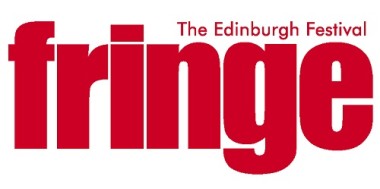
Edinburgh Festival Fringe 2017 [4] – Various venues, 25.8.2017. (SRT)
Elsa Jean McTaggart, Surgeon Hall
WHYTE, Fairich: Live, Scottish Storytelling Centre
Concerto a tempo d’umore, Assembly Rooms
People react to the third week of the Fringe in different ways. Some people retreat and wish it would all pack up and go away. I worry that I haven’t seen enough! So I spent the day exploring some less familiar corners of the music programme.
For being Scotland’s capital, Edinburgh has a surprisingly sleepy folk scene (Glasgow’s is much livelier), and I love it that folk is a strong element of the Fringe’s programme. Elsa Jean McTaggart’s set was notably open and inclusive, welcoming people from several corners of the globe, and telling us that her guitar was called Belinda, but for full effect that had to be pronounced in a deep English accent. She shared the stage with her husband on keyboards and, like most good folk artists, she shared a lot of her own story with her music. I enjoyed the affectionate song she wrote for her sister when she emigrated to New Zealand, for example, and one very fun song was inspired by her life in Ireland when she attended lots of sessions that featured a fiddler who mimed instead of playing. I wasn’t prepared for the electronic nature of her sound, though, and it took me a while to get into it. Her fiddle was fully electric, for example, and the keyboards even featured pre-recorded synthesiser tracks at points. That said, of all her instruments it was her fiddle that I had warmed to the most by the end of the show, and she displayed some pretty formidable skill, as well as being able to spin an atmospheric set.
Up on the Royal Mile, the Scottish Storytelling Centre exists all year round to promote all aspects of Scottish traditional culture, be it narrative, visual or aural. I eased into their snug little downstairs theatre to hear Fairich: Live. WHYTE, the band, are more of an electronic than a folk group, but they definitely operate in the folk tradition. They’re a duo who sang their whole set in Gallic (of which I speak not a word), but I liked the defiant integrity of their approach to the language: they provided no translations (save the titles) but told us that they could provide leaflets after the show which gave information about the songs and their words. It made me think a little of Debussy’s approach to his programmatic piano Preludes, where he gave them a descriptive title but printed it only at the end of the piece so that the music could be expected to speak for itself. All WHYTE did was to play through their recent album, Fairich, but I must admit I found the whole experience pretty hypnotic and really very involving, even if I didn’t understand a word. It helped that they had collaborated with David Shay, who had produced a series of visuals that commented on the songs and, I assume, commented on their content. These mostly consisted of misty Highland scenes, with lots of shots of moving water and overcast skies, but I found them rather mesmerising, and they definitely added to the impact.
The Assembly Rooms, on George Street, was the original entertainment venue when Edinburgh’s Georgian New Town was built 250 years ago. “Assembly” has since become one of the biggest brands on the Fringe, and they have long since slipped the bonds of George Street, spreading into venues all over the city. In the splendour of the Georgian Music Hall I settled into Concerto a tempo d’umore; a show which, I was assured would appeal to classical newcomers as well as “aficionados.” The show consists of a band of twelve Catalan string players who toy their way through lots of classical hits with their own humorous twist. I accept that I may not the audience for it, but I found it formulaic, repetitious and tiresome. The players are skilful enough, and the way they played with Vivaldi’s Spring or Schubert’s vs Bach/Gounod’s Ave Maria was diverting enough, but the conductor who fell asleep to Chopin’s Funeral March or checked his mobile phone to Brahms’ Hungarian Dance was desperately dull, and the jokes far outstayed their welcome. Most of the crowd around me were in hysterics. All I can say is that I didn’t laugh once.
Simon Thompson
